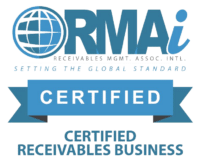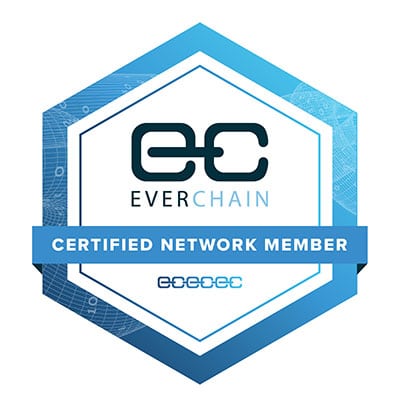Today’s dynamic business environment calls for industry networking as an indispensable tool for companies aiming to stay ahead of the competition and uncover new opportunities. Landmark Strategy Group, a leading receivables management firm, strives to exemplify this approach.
With over 60 years of combined experience in the Accounts Receivable Management (ARM) industry, Landmark’s executive team understands how crucial networking is in driving businesses forward.
In this comprehensive article, we’ll delve deep into the benefits of industry networking and share a wealth of tips and tricks to help businesses network effectively and foster growth.
Benefits of Industry Networking
- Expanding your knowledge base: Networking within your industry allows you to stay informed about the latest trends, innovations, and best practices. Connecting with industry experts and thought leaders helps you gain insights into new strategies and techniques, keeping you competitive.
- Building relationships: Establishing strong connections with other professionals in your industry can lead to valuable collaborations and partnerships. These relationships can open doors for new business opportunities, referrals, and even strategic alliances, significantly impacting your company’s growth.
- Raising your profile: Actively participating in industry networking events and engaging with peers can help raise your company’s profile and increase brand awareness. This can lead to increased recognition and credibility, ultimately driving new business opportunities.
Tips and Tricks for Effective Industry Networking
- Identify networking opportunities: Start by identifying networking events, conferences, and trade shows in your industry. Subscribe to industry newsletters and follow relevant organizations on social media to stay informed about upcoming events.
- Set clear goals: Before attending a networking event, establish clear goals and objectives, such as meeting specific individuals, learning about new industry developments, or exploring potential business opportunities.
- Prepare beforehand: Research attendees, speakers, and organizations present at an event before attending. Prepare a list of questions or talking points to help guide your conversations and ensure you make the most of the networking opportunity.
- Listen and engage: Effective networking involves active listening and genuine engagement. Show interest in what others have to say and ask thoughtful questions to build rapport and demonstrate your expertise in your field.
- Follow up after events: Take the time to follow up with contacts you made at networking events. Send personalized emails or connect on social media platforms to maintain relationships and explore potential collaborations or partnerships.
- Use online platforms: In addition to attending physical events, use online platforms like LinkedIn to expand your network. Join industry-specific groups and engage in conversations to showcase your expertise and connect with potential partners or clients.
- Embrace thought leadership: Position your company as an expert by sharing your knowledge and experience through articles, whitepapers, and presentations, strengthening your reputation and attracting like-minded professionals to your network.
- Encourage a networking culture: Motivate your team members to actively participate in industry events and online discussions. This not only expands your company’s networking reach but also helps employees stay informed about industry trends and best practices.
- Maintain relationships: Networking isn’t a one-time effort. Make an effort to stay in touch with your contacts and nurture relationships over time, leading to long-lasting professional connections and increased opportunities for collaboration.
- Build a mentor-mentee network: Establish relationships with experienced professionals who can offer guidance and support while also seeking out less experienced individuals whom you can mentor. This reciprocal approach not only expands your network but also fosters an environment of mutual learning and growth.
- Develop a memorable elevator pitch: Create a concise yet impactful elevator pitch that clearly communicates your company’s value proposition. This will help you make a strong impression during networking events and facilitate meaningful conversations.
- Be approachable and confident: Your body language and demeanor significantly influence networking interactions. Maintain eye contact, offer a firm handshake, and exude confidence while remaining approachable and friendly.
- Offer value and assistance: Networking is a two-way street. Share your expertise and resources with others and offer assistance when appropriate. This can help build trust and strengthen relationships with your contacts.
- Organize your contacts: Use tools like customer relationship management (CRM) systems or digital contact organizers to manage and track your networking connections. Regularly update contact information, add notes about conversations, and set reminders for follow-up actions to stay organized and efficient.
- Attend events regularly: Make networking a priority by consistently attending industry events and gatherings. This continuous engagement will help you stay top-of-mind with your contacts and reinforce your commitment to staying connected within your industry.
- Host your own networking events: Organize and host your own industry-specific events to position your company as a thought leader and facilitator of valuable connections. It also provides a unique opportunity to engage with your target audience on a more personal level.
- Seek out and attend niche events: In addition to attending larger conferences and trade shows, seek out smaller, niche events that cater specifically to your industry or area of expertise. These gatherings often provide more intimate settings for meaningful conversations and targeted networking.
- Track your networking ROI: Stay aware of the outcomes of your networking activities by keeping track of things like new business leads, referrals, and partnerships formed. This way, you’ll know what works best and can adjust your strategies accordingly.
- Get creative with your networking: Don’t just stick to events and conferences – try out different ways to connect with others, like webinars, workshops, and industry forums. By diversifying your approach, you’ll reach more people and grow a stronger professional network.
- Remain patient and persistent: Building a strong professional network takes time and dedication. Be patient in your efforts and consistently work on cultivating relationships, attending events, and engaging with your contacts to yield long-term benefits.
How to Develop a Forward-Thinking Networking Strategy
Industry networking is a powerful tool for driving new opportunities and fostering growth. By following these extensive tips and tricks, businesses can stay ahead of the curve, build valuable relationships, and uncover new opportunities in their industry. With a proactive approach to networking, companies can expand their knowledge base, raise their profile, and ultimately drive their business forward in today’s competitive landscape.
Connect with Landmark Strategy Group, the experienced receivables management firm, to drive your business forward through their efficient, compliant processes and exceptional customer service.
About Landmark Strategy Group
Landmark Strategy Group, LLC is a nationally licensed and bonded receivables management firm located in West Seneca, NY that specializes in passively purchasing non-performing receivables portfolios. Mark Lesinski and the rest of Landmark’s executive team have a combined total of 60+ years of experience in the ARM industry and have developed efficient and compliant processes that deliver a quick valuation, streamlined purchase, and exceptional customer service after the sale.





